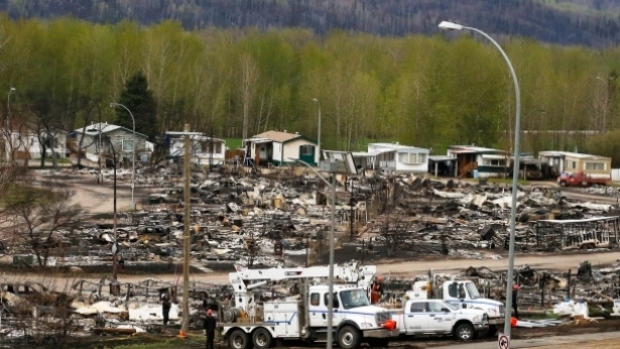
Global Water Futures discusses risks of rebuilding Fort McMurray
The Associate Program Director of Global Water Futures is criticizing a decision to allow people who lost their homes during the fire in Fort McMurray, Alta., to rebuild on a known flood plain
"If any community in Canada understands the risks that are associated with a changing climate, it has to be Fort Mac.”
That’s according to John Pomeroy, Associate Program Director of Global Water Futures and director of the Centre for Hydrology at the University of Saskatchewan.
Pomeroy is criticizing a decision to allow people who lost their homes during the fire in Fort McMurray, Alta., to rebuild on a known flood plain, according to a recent article that appeared in the CBC.
John Pomeroy says it may seem compassionate to allow people in the fire-ravaged, flood-prone Waterways subdivision to rebuild, but he stresses it really isn't.
"True compassion would be to keep people's homes out of flood plains," says Pomeroy. "It is not only property damage but loss of life and health that result from floods, so avoidance is the best policy,"
Waterways, one of the oldest neighbourhoods in Fort McMurray, was devastated by May's fire. More than half of the properties destroyed were located in a flood hazard zone, which is why in the aftermath of the disaster there was uncertainty about whether residents would be able to rebuild.
Since the year 2000, Pomeroy says, Canada has spent about $1 billion a year because of flood damage. He says flood-plain mapping is uncertain because climate change means the past is no longer a good predictor of future events.
Pomeroy is helping to lead a research initiative called Global Water Futures. It involves a handful of Canadian universities, and part the work is focused on flood forecasting to help communities make better decisions on development.
